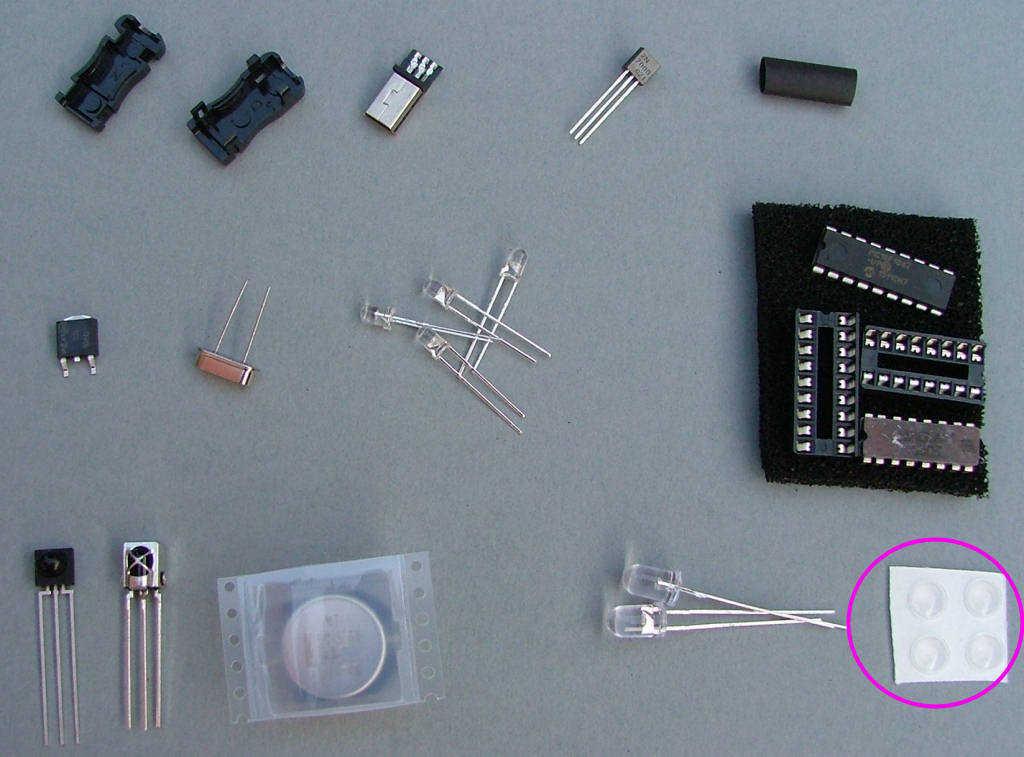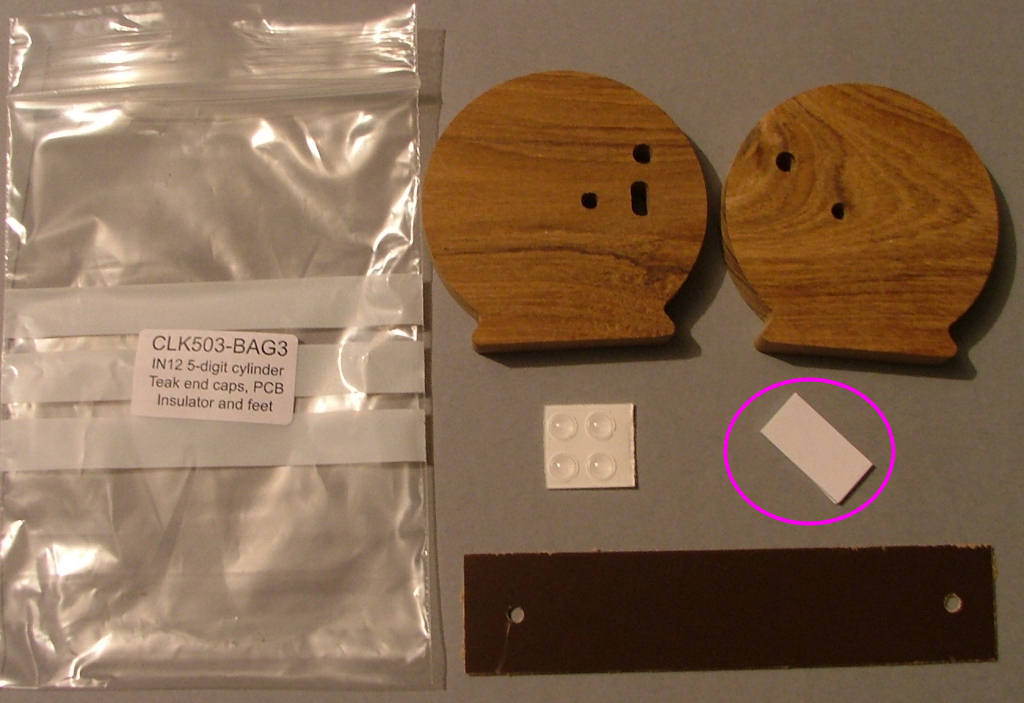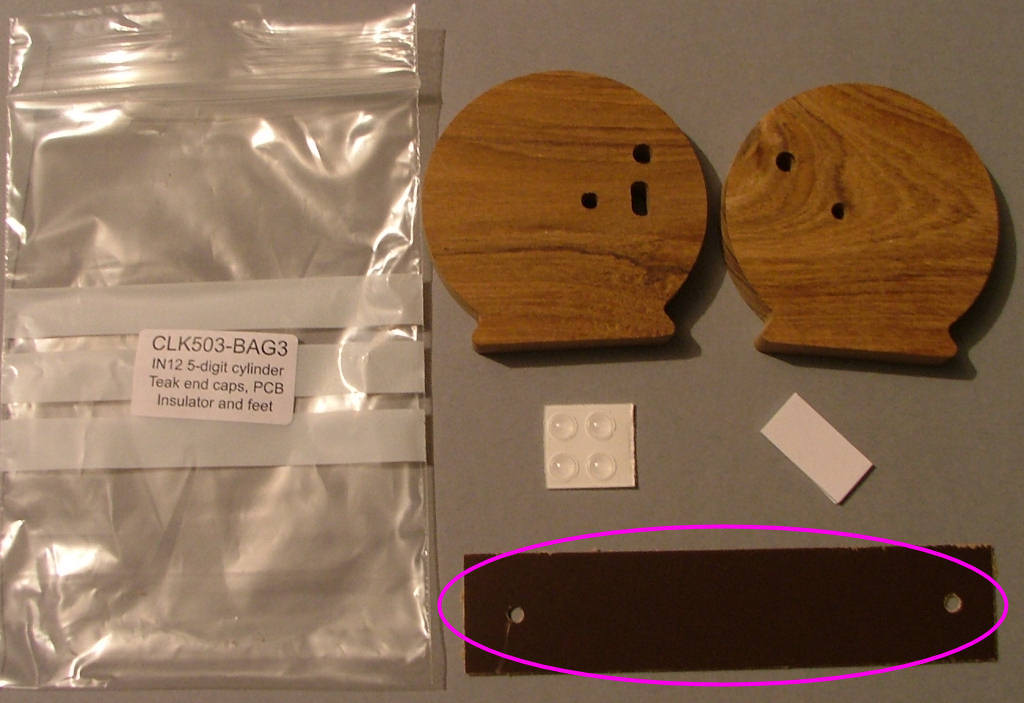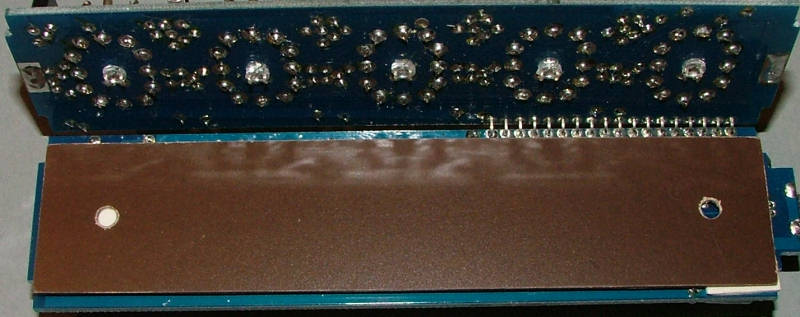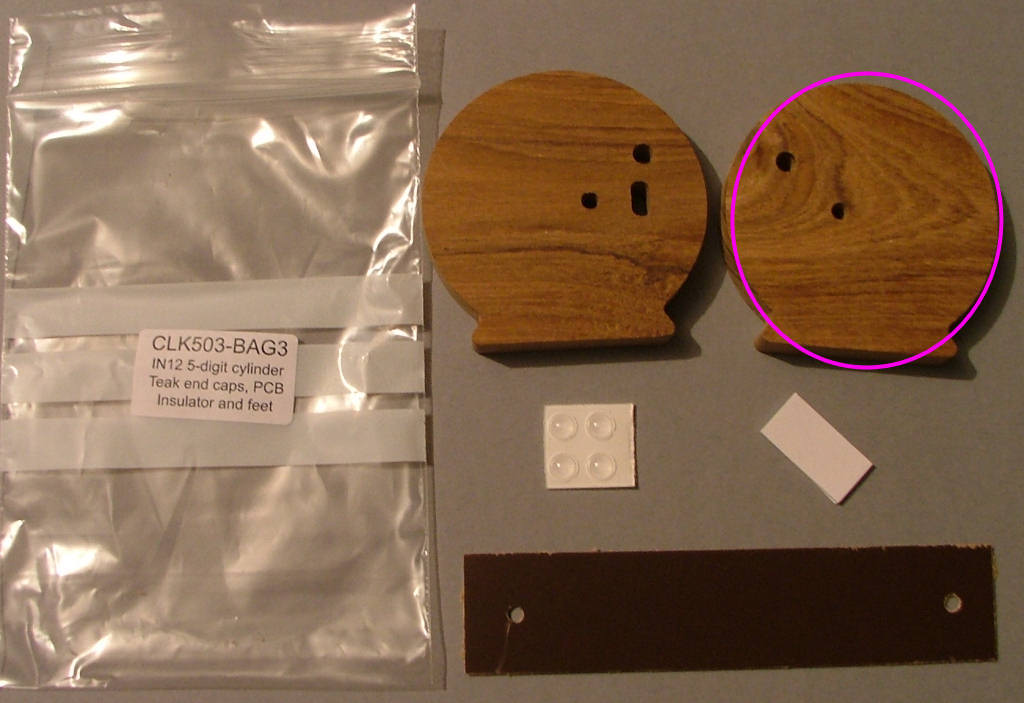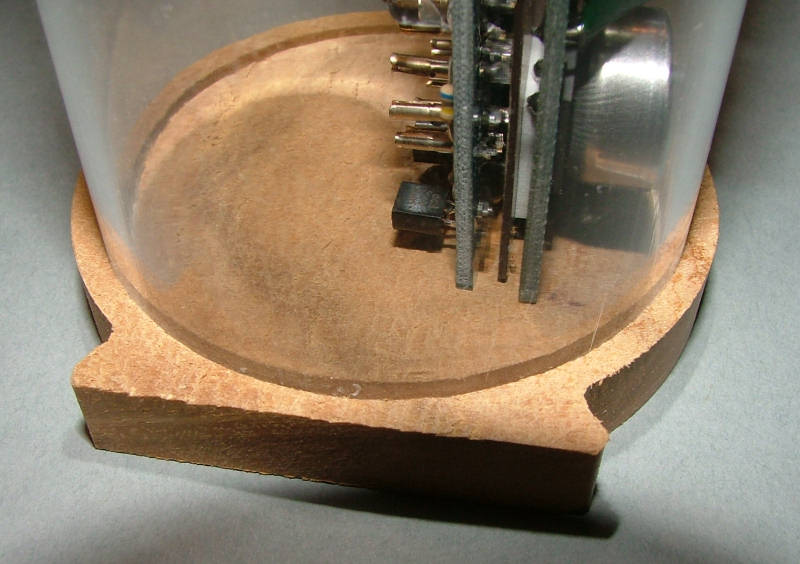Now the tricky part - you'll need to push the right hand end over the cylinder whilst lining up the PCB grooves.
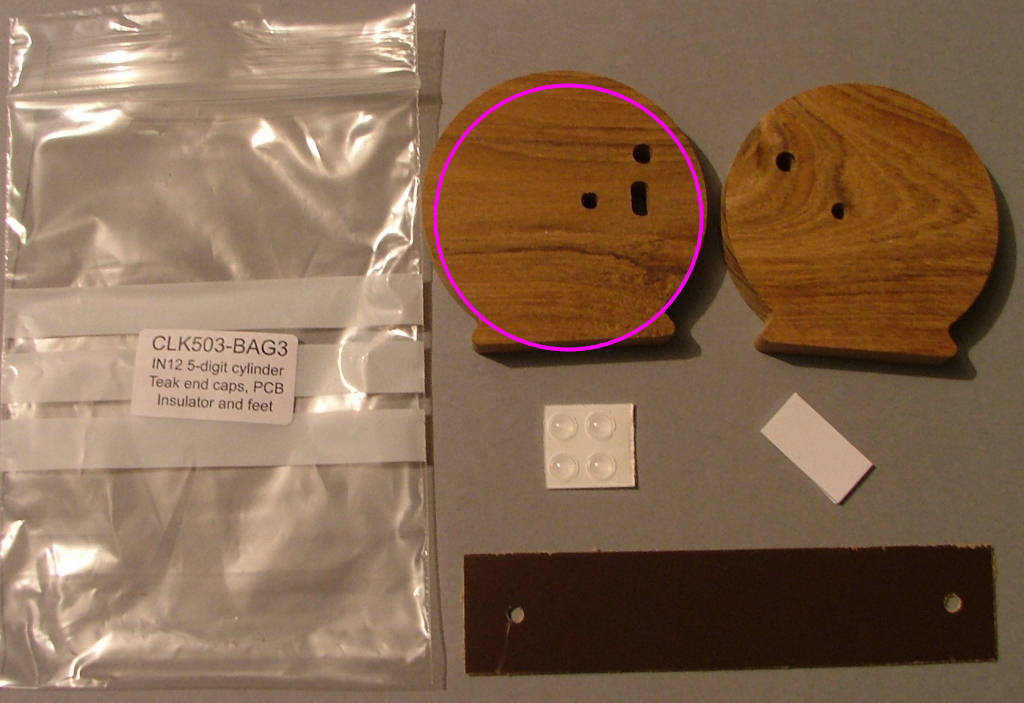
Once it's in place quickly connect the USB power to make sure the plug fits and check the IR sensor still works when your hand is about 4-6 inches above the cylinder.
If everything is OK use the screws from BAG1 to hold each end in place. Some kits are supplied with raised head bolts as shown, others have countersunk bolts, for these you'll need to countersink the bolt holes in the ends by about 3-4mm.
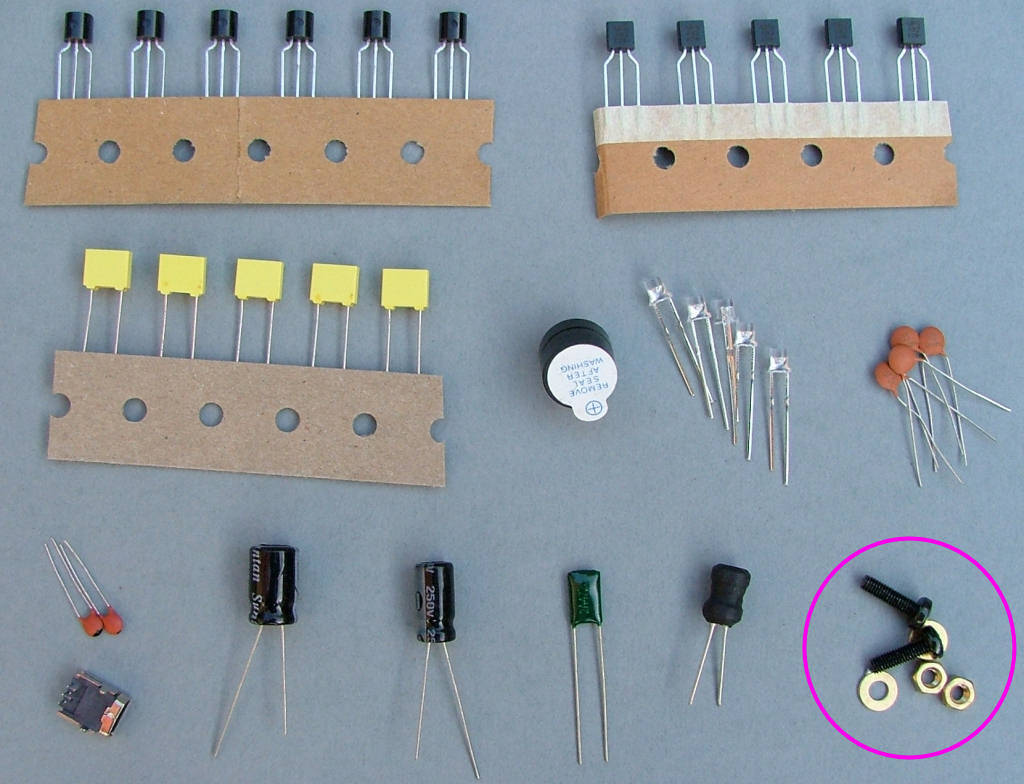
Finally stick 2 rubber feet onto the underside of each end piece. That's it!.
